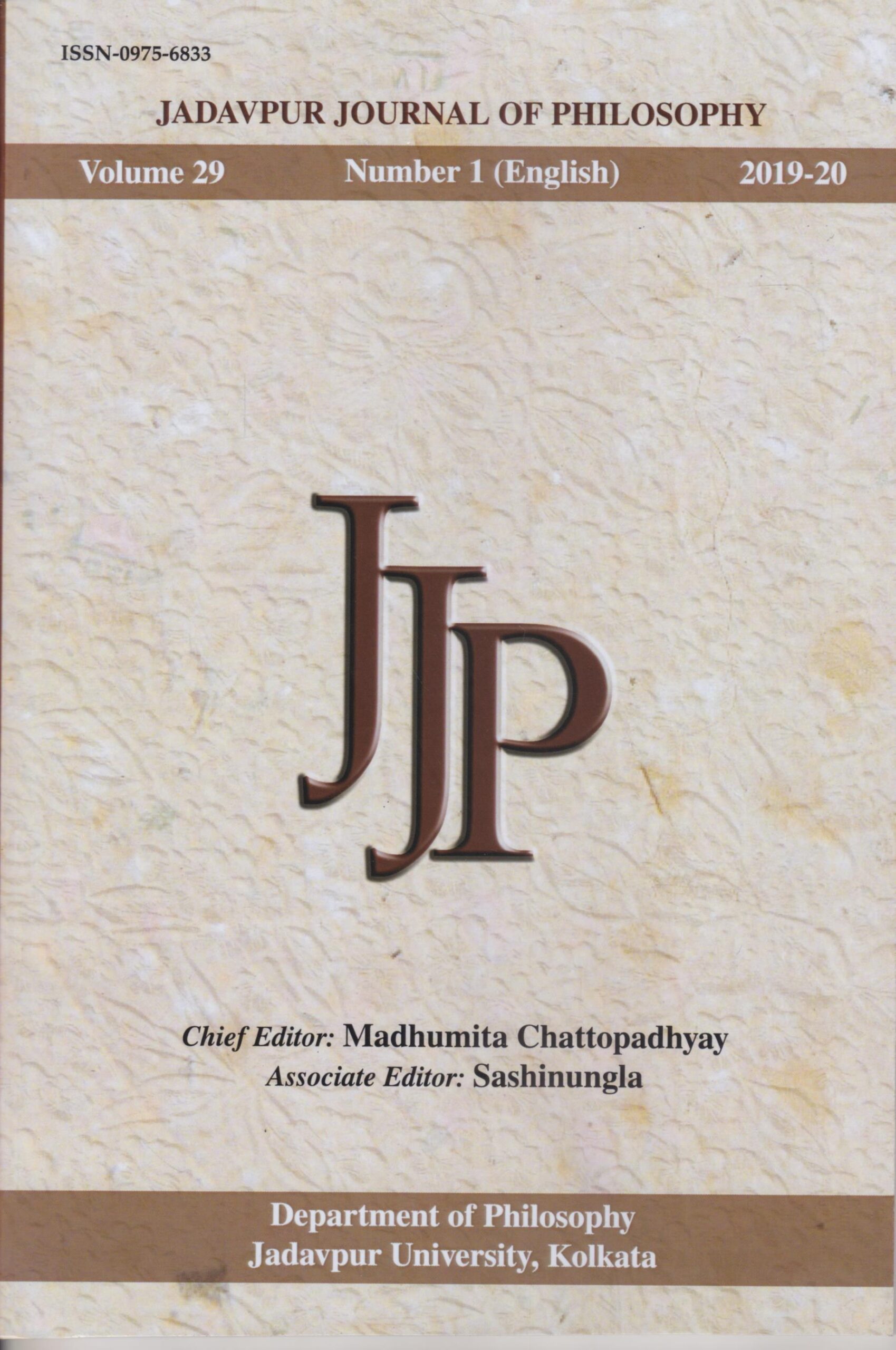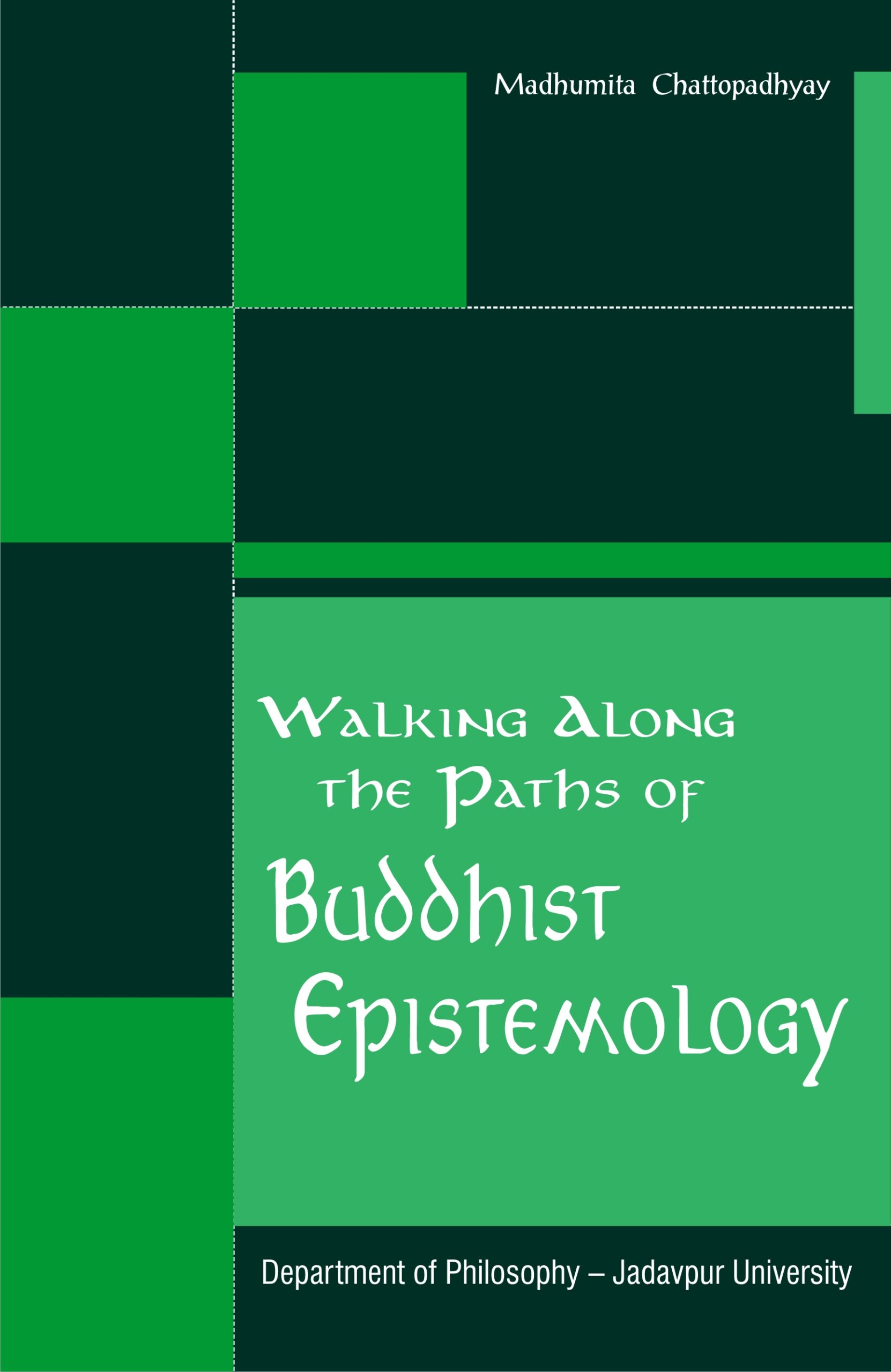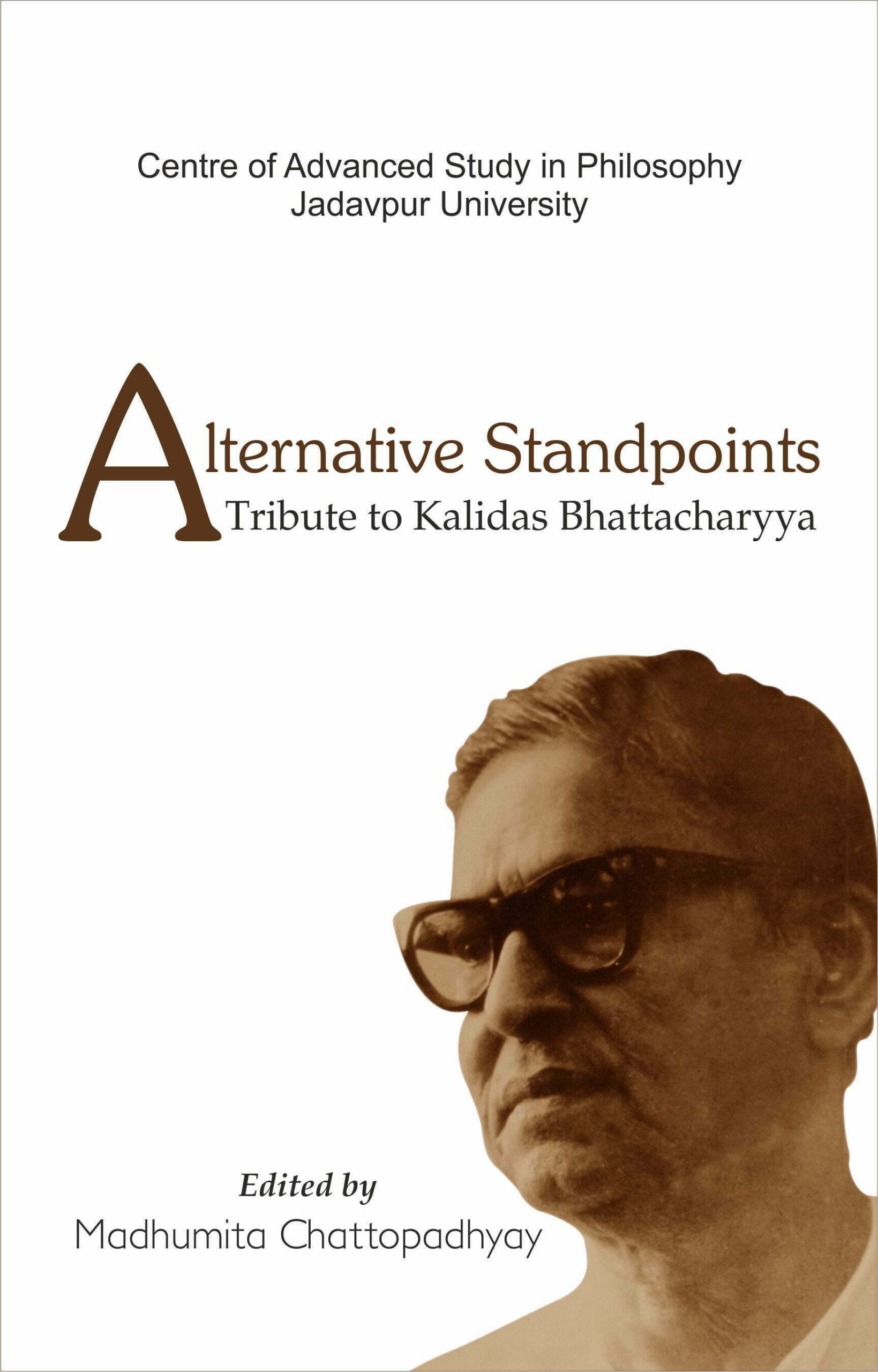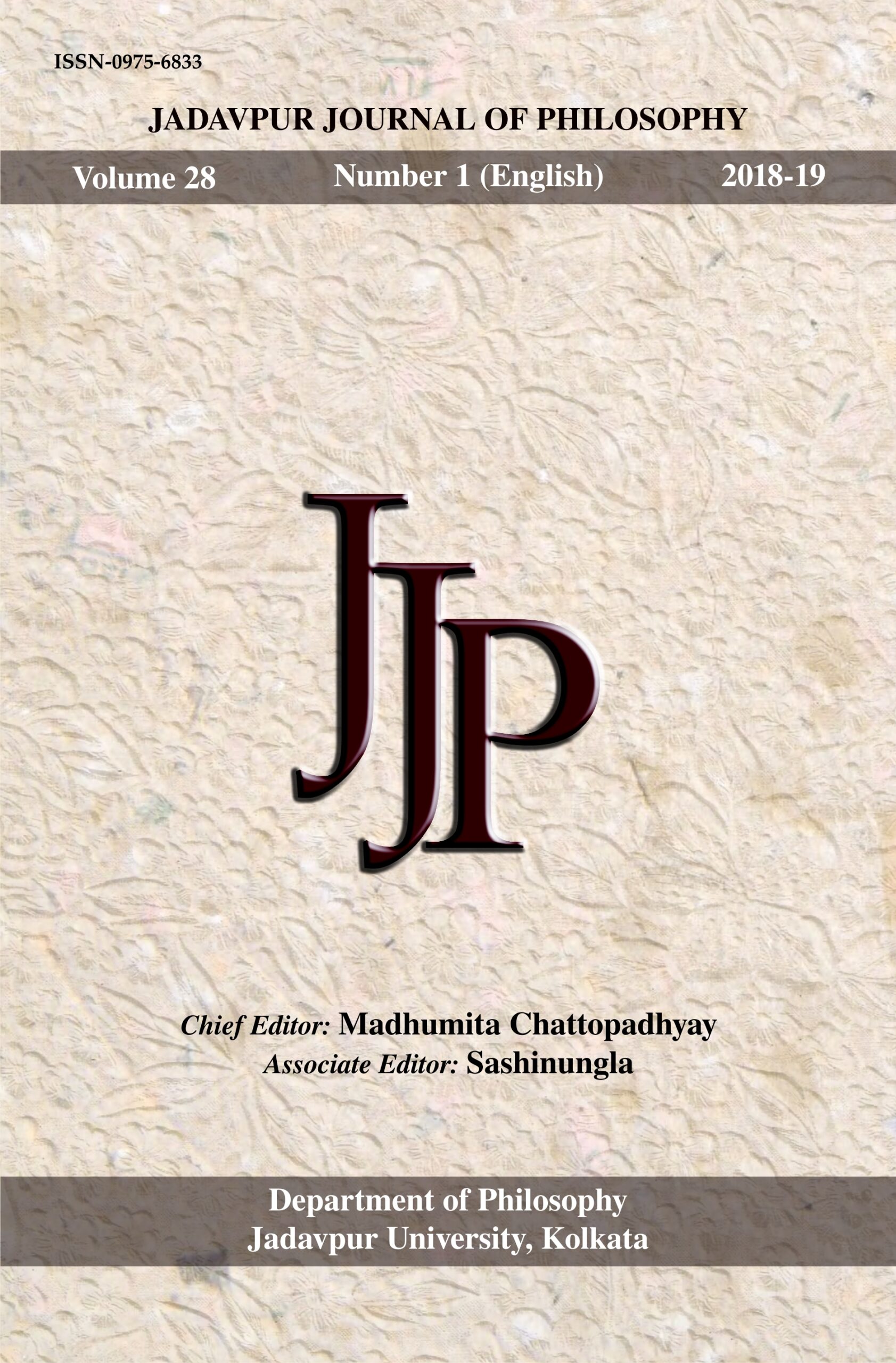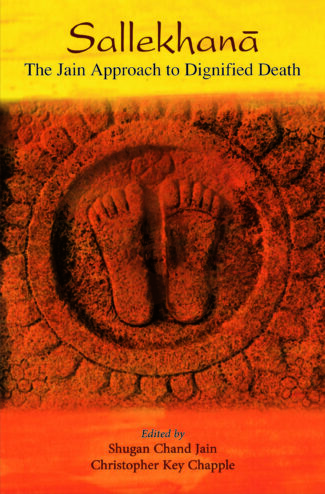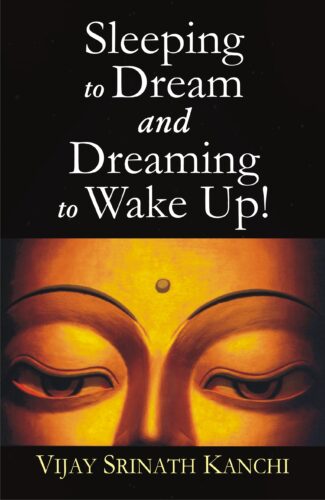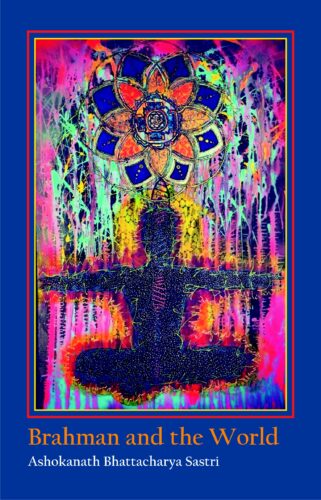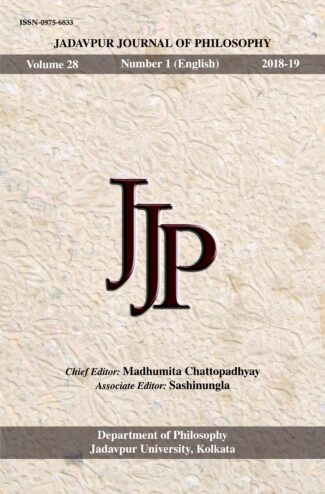
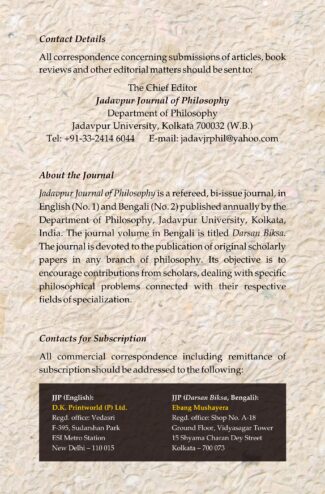
Jadavpur Journal of ...
Jadavpur Journal of Philosophy
Vol. 28; Number 1 (English); 2018-19 by: Madhumita ChattopadhyayJadavpur Journal of Philosophy is a refereed, bi-issue journal, in English (No. 1) and Bengali (No. 2) published annually by the Department of Philosophy, Jadavpur University, Kolkata, India. The journal volume in Bengali is titled Darsan Biksa. The journal is devoted to the publication of original scholarly papers in any branch of philosophy. Its objective is to encourage contributions from scholars, dealing with specific philosophical problems connected with their respective fields of specialization.
₹300.00 Original price was: ₹300.00.₹270.00Current price is: ₹270.00.
ISBN: 9788100000891
Year Of Publication: 2020
Edition: 1st
Pages : iv, 147
Language : English
Binding : Paperback
Publisher: Jadavpur University
Size: 23
Weight: 282
This book proposes to take up the question of Universal Causation to examine thoroughly as how far it is right to regard Brahman as the Universal Cause and how far strakra himself lent his support to each of the inter-conflicting schools of Vednta. This book should, therefore, benefit all who are devoted to the philosophic teachings of Advaita Vednta and its preceptors.
Talking about What There Is Not
— Imdadul Islam Molla
A Semantic Reading of Quantum Gravity
— Enakshi Ray Mitra
Theories of Sentence Meaning: Some Common Concerns
— Ruba Bandyopadhyay
Role of Buddhi in the Bhagavadgītā
— Binod Kumar Agarwala
The Cases for Hānādi Buddhi: Moment Examinations
— Mainak Pal
Objectual vs Substitutional Interpretations of Quantifiers
— Madhusree Chatterjee
List of Contributors
- Sale!Sallekhana by: Shugan Chand Jain, Christopher Key Chapple,
₹1,200.00Original price was: ₹1,200.00.₹1,080.00Current price is: ₹1,080.00.Jainism regards life to be eternal. Recognizing that the soul can never die, but merely takes a new body, a careful tradition welcoming death through intentional fasting developed more than two thousand years ago. A legal challenge Rajasthan was put forward in 2013, suggesting that this practice is harmful and coercive and targets women in particular. For a short while Sallekhanā, which means the “thinning of existence,” was declared illegal. In response to this controversy, three conferences were convened by the International School for Jain Studies to explore the legal, religious, and medical aspects of this practice. Experts discussed the long history of the practice, attested to in epigraphs throughout India; the ways in which fasting to death has become an acceptable practice in the Western world; and contemporary instances of its observance in India. This volume presents an interdisciplinary approach to thinking about the end of life, from biomedical, historical, religious, and legal perspectives.
- Sale!Vada in Theory and Practice by: Radhavallabh Tripathi
₹1,300.00Original price was: ₹1,300.00.₹1,170.00Current price is: ₹1,170.00.Vada, meaning debates, dialogues, discussions, was the quintessential of Indian spirit, enabling and promoting the growth of different philosophical and knowledge systems of India. It percolated deep into our mindset and enriched the moral, ethical, religious and sociocultural edifice of anything that was essentially Indian in nature. As continuation of Anvikshiki from the bc era, vada helped thrive Indian traditional knowledge systems. It subsists on diversity and its tradition envisages pluralism.
Most of our Sanskrit works, covering a wide gamut of knowledge systems, are structured in the techniques of debate. This reality applies not only to the philosophical writings, but to Indian medical systems (Ayurveda), Arthashastra of Kautilya and Kamasutra of Vatsyayana as well. Even great epics like Ramayana and Mahabharata are no exceptions.
Vada culture involved verbal duals, attacks and even violence of speech, and all major religious systems — old or modern — were parties to it. This book also elucidates how vata was vital and critical for the growth of our socio-political fabrics. It shows how some of the major conflicts in philosophical systems were centred around karma, jnana, choice between violence and non-violence, pravritti and nivritti. It also presents the manifestations of vada on a vast canvas during the nineteenth and twentieth centuries. Modern spiritual and religious gurus like Ramana Maharshi, J. Krishnamurti and Vinoba Bhave were men of dialogues. Our scholars have applied the varied techniques of vada against the philosophical and scientific systems of the West to prove them correct.
This collector’s issue should enthrall a wide audience of philosophers, scholars and believers in Indian knowledge systems. - Sale!Sleeping to Dream and Dreaming to Wake Up by: Vijay Srinath Kanchi
₹1,600.00Original price was: ₹1,600.00.₹1,440.00Current price is: ₹1,440.00.“Dreams play a significant role in our life, meaningfully affecting us in the development of our personality and our spiritual journey. They are an everyday experience for any human being. Dreams have always been of great interest to poets and philosophers alike since ancient times and examples are aplenty in Indian and Western scriptures. However, it is an uphill task for an ordinary person to fully appreciate the intricacies and significance of dreams in the day-to-day life. It is here that this book proves as an invaluable guide providing deep understanding on the nature of dream and sleep.
This book is a repertoire of human wisdom – gathered for centuries and attested by the modern science – offering enormous insights into our dream and deep-sleep states. It asks, from a common man’s point of view, many a question that perturb us and provides answers to them from the scientific and spiritual perspectives in a captivating way. Some such questions include:
• Do we see dreams in black and white or in colour?
• What does a visually-challenged person see in his dreams?
• Why are some of our dreams extraordinarily vivid with electric colours, the clarity and brilliance of which, we may never encounter in our ordinary waking lives?
• Why are we non-reflective, irrational in our dreams?
• Are the dream time and waking time equal?
• How does our memory work in dream state? Why do we forget our dreams and is it possible to improve dream recall and cultivate awareness in dreams?
• Why do we fail to distinguish a dream object from the physical world object while we are dreaming?
• If the dream experience exactly feels like the real world and we fail to distinguish it from the waking world while we are dreaming, how can we be certain that we are not dreaming now?
• How does a dream contain various persons exhibiting opposite emotions at the same time when all the dream characters including the witnessing dreamer are produced out of single mind of the dreaming person?
• Can we intentionally transform the dream scenarios? If so, what would be the philosophical implications of it?
• Can dreams and sleeps be utilized for spiritual elevation?
… and many more questions we always wondered about the daily eight hours of our bed time, but never got the right answers to! We find new meanings and ways in dealing with our dreams in this volume, therefore, it is a must read for every dream enthusiast as well as any serious spiritual seeker.
“ - Sale!Vedanta Science and Technology: A Multidimensional Apporoach by: Girish Nath Jha, Bal Ram Singh, Sukalyan Sengupta,
₹3,000.00Original price was: ₹3,000.00.₹2,700.00Current price is: ₹2,700.00.Vedānta texts have been well known for their richness in fundamental scientific and technological principles with strong potential for research and development today. In fact, much of ancient India’s remarkable achievements in science and technology can be credited to Vedantic texts.
This volume – proceedings of the 22nd International Congress of Vedanta held during 27-30 December 2015 at Jawaharlal Nehru University, New Delhi – features 53 scholarly articles from a wide variety of areas of study. The 22nd Vedanta was a confluence of scholars from various disciplines and the papers in this volume bear the imprint of an intense discussion that is usually expected from a good Vedanta seminar. Though the majority of the papers are in English, a few are in Sanskrit and Hindi as well. The papers are grouped under Vedānta Studies, Vedānta and Philosophy, Vedānta and Science, Vedānta and Culture, Applied Vedānta, and Digital Access and Search of Sanskrit Texts.
This multidimensional approach extends the core scientific ideas of Vedānta to social, cultural, aesthetic and religious aspects of studies, creating a wide spectrum of intellectual discourse and trying to discover fundamental scientific and technological aspects of Vedānta studies.
Being a worthwhile addition to Vedānta studies, this volume should invoke keen interest among all those who are deeply into it, be a student, a researcher or a common reader. - Sale!Brahman and the World by: Ashokanath Battacharya Sastri
₹500.00Original price was: ₹500.00.₹450.00Current price is: ₹450.00.“The Vedānta has been rightly called the Finest Fruit of Indian Thought and the Upaniṣads as the Finer Flowers. Vedānta grows out of the teachings of the Upaniṣads and passes into the various systems in the writings of Śaṅkara, Bhāskara, Rāmānuja, Madhva and Vallabha, the great founders of Advaita, Bhedābheda, Viśiṣṭādvaita, Dvaitādvaita and Śuddhādvaita, respectively. However, there is a perception among Orientalists that while the Upaniṣads favour the Monistic doctrine, Bādarāyaṇa’s Brahmasūtra fundamentally opposes it on some of the most crucial points.
The book thus delves deep into the philosophies of both Bādarāyaṇa and Śaṅkara in enunciating the essential features of Brahman and Its association with the world. It thus discusses topics such as what sort of cause Brahman is?, and what sort of material causality is to be ascribed to It? It also addresses the conflicting views on the nature of Brahman like that of Vivarttavāda and of Rāmānuja’s Saguṇa-Brahman.
This book proposes to take up the question of Universal Causation to examine thoroughly as how far it is right to regard Brahman as the Universal Cause and how far sūtrakāra himself lent his support to each of the inter-conflicting schools of Vedānta. This book should, therefore, benefit all who are devoted to the philosophic teachings of Advaita Vedānta and its preceptors.”


